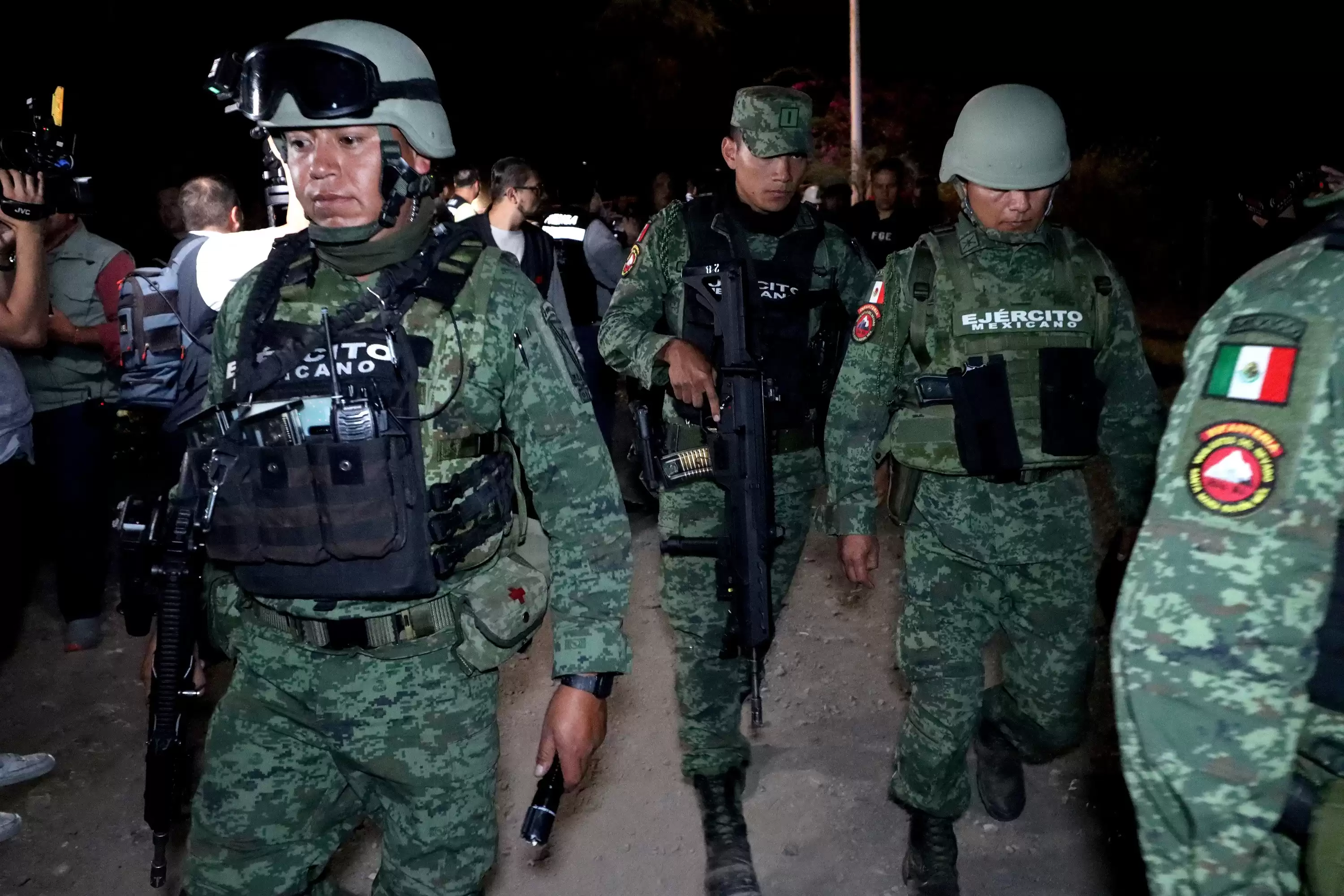Drug Cartel in Mexico Kills 4 Police Officers and 2 Civilians with Roadway Bombs
Drug cartel sets off roadway bombs, killing 4 police officers.
In a shocking and devastating incident, a drug cartel in western Mexico unleashed a coordinated attack using seven roadway bombs, resulting in the deaths of four police officers and two civilians. The governor of Jalisco state described the explosions as a "trap" set by the cartel to target law enforcement personnel. The chief prosecutor of Jalisco state, Luis Méndez, revealed that the blasts were so powerful that they created craters in the road, destroyed multiple vehicles, and left 14 others injured.
What makes this attack particularly alarming is that it marks the first time a Mexican cartel has used improvised explosive devices (IEDs) to kill law enforcement personnel. It is yet another example of the increasingly brazen and military-style tactics employed by drug cartels in the country. Méndez suggested that the bombs may have been remotely detonated, emphasizing that the blast occurred exactly when the cartel desired.
Among the casualties were two civilians who happened to be in a passing vehicle when the IEDs detonated. Additionally, 12 of the wounded were civilians, including three children aged 9, 13, and 14, some of whom are in serious condition. The area is still considered dangerous, as experts had to defuse an eighth IED that failed to detonate.
According to Enrique Alfaro, the governor of Jalisco state, the officers fell into a "trap" set by an anonymous caller who provided a tip about a clandestine burial site near the roadway. It is worth noting that Mexico has been grappling with the issue of over 110,000 missing individuals, and volunteer search groups, usually comprised of the mothers of the missing, often receive anonymous tips about potential burial sites.
Governor Alfaro condemned the attack as a "brutal terror attack" and temporarily suspended police escorts for volunteer searches to ensure the safety of civilians. He described the incident as an unprecedented act that exposes the capabilities of drug cartels and openly challenges the Mexican government at all levels. While he did not name a specific cartel responsible for the bombing, the Jalisco drug cartel has a history of utilizing IEDs and bomb-dropping drones.
This attack comes shortly after another cartel used a car bomb to kill a National Guard officer in the neighboring state of Guanajuato. Moreover, in the state of Guerrero, protesters aligned with a different drug gang engaged in a violent clash with security forces, commandeering a police armored truck to breach the state legislature building's gates.
The region around Guadalajara has been a battleground for rival factions of the Jalisco cartel, which has previously employed IEDs in Mexico. In February 2022, an army vehicle was damaged, and ten soldiers were injured by a roadside mine in the Michoacan township of Aguililla. A few days later, a farmer lost his life when his pickup truck drove over an IED, which contained ammonium nitrate. Mexican army troops equipped with metal detectors and bomb suits were subsequently deployed to the area, uncovering numerous devices along rural roads and fields.
These IEDs utilized various triggering mechanisms, including radio or telephone signals, pressure, and chemical reactions. The Jalisco cartel's ongoing conflict with the Viagras gang, also known as United Cartels, has witnessed the use of trenches, pillboxes, homemade armored cars, and modified drones capable of dropping bombs. In Michoacan, the cartels' bomb-carrying drones have caused more fear than land mines, with their impact often leaving metal roofs of buildings severely damaged.
The attack in Tlajomulco has dealt a significant blow to volunteer search groups that rely on anonymous tips to locate mass grave sites. These groups, predominantly comprised of the mothers of missing individuals, have long operated under a fragile understanding with the cartels, emphasizing that their goal is to find remains for proper burial rather than gather evidence for prosecution. However, six volunteer search activists have been killed in Mexico since 2021, and there have been instances of cartels attempting to intimidate searchers, especially if they investigate active burial sites.












Comments on Drug Cartel in Mexico Kills 4 Police Officers and 2 Civilians with Roadway Bombs